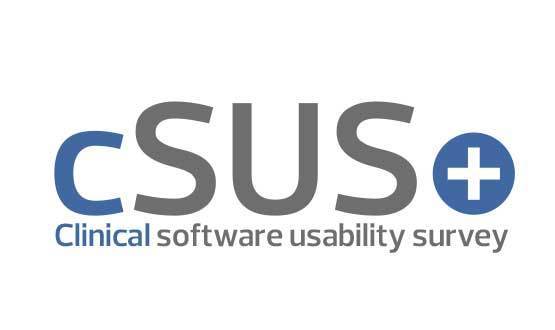NHS clinicians have been asked to rate the usability of their main IT system in a survey launched by Digital Health Intelligence and the CCIO Leaders Network.
The first Clinical Software Usability Survey is intended to provide a better understanding of how easy a piece of clinical software is to use; according to the doctors, nurses and staff who use it on a regular basis.
The ultimate aim is to create a site similar to travel review site 'TripAdvisor' so that clinicians and NHS managers can see reviews of medical software and discuss professional experiences of different systems. This site is planned for launch in autumn 2016.
In the initial pilot phase of the project, clinicians will be asked to rate the electronic patient record systems in use across acute, mental health, community and primary care in the NHS. Other categories of systems will be surveyed in the future.
The survey, which was launched today at the annual CCIO National Conference in Birmingham, is based on the System Usability Scale, a ten item questionnaire to measure the usability of systems that is accepted across the IT industry.
The cSUS also includes an additional five questions specific to patient care; such as whether a system reduces the risk of clinical error, in the user’s opinion. These extra questions were decided after consultation with members of Digital Health’s networks.
Jon Hoeksma, chief executive of Digital Health Intelligence Limited, acknowledged that SUS isn’t perfect but said it is a “road-tested” format to assess the usability of systems.
He added that one of the most useful aspects of the survey may be the ability for clinicians to submit further comments in free text boxes. “We hope that suppliers will see this as invaluable end user feedback,” he said.
Hoeksma said that the survey builds on Digital Health Intelligence’s Clinical Digital Maturity Index, which lists the clinical systems in use at different organisations but doesn’t provide information on the scale of their implementation or their use.
“It’s not apparent how effective those systems are and how usable they are. But through the CCIO Network, we can ask those questions.”
He said this is important because “time and time again” the usability of clinical systems is reported to be poor, yet it doesn’t appear to be one of the main considerations for system developers.
A key influence for cSUS is the Big Mental Health Survey, which asked mental health professionals to rate their electronic patient record systems. This was carried out in 2012 on behalf of BCS Mental Health.
One of the lead clinicians on the project, Dr Joe McDonald, is chair of the CCIO Network and is helping to develop cSUS. He told Digital Health News that the Big Mental Health Survey had made suppliers "nervous", but it was useful for them to learn where their users wanted things to improve. "If they embrace the process they can get improvements out of their system."
He added that the Big Mental Health Survey uncovered variation in people's responses according to where they were based, suggesting that local deployment is a factor in how people rate each system. "You shine a lot not just on the system but on the quality of the local IT department as well."
McDonald said he hopes that cSUS will build on this work and address the "frustration" that NHS staff feel about having no real idea of how a system functions until they actually implement it.
He added that he is a big fan of 'Which?' magazine, which provides review comparisons on consumer goods. He argued that something similar is needed for clinical IT systems, because there is currently no way to compare attributes such as durability, effectiveness and cost-per-user. "I think this is astep down the road to 'Which?' magazine for healthcare software," McDonald argued.
Dr Marcus Baw, a locum GP with an interest in health IT has led the cSUS project. He said: “Unlike the web we all use every day, healthcare IT is a sector that has so far had very little focus on user experience, with some unfortunately predictable consequences.
“By giving front line clinical staff a voice we hope to get usability onto the agenda and this alone will force vendors to compete on usability.”
Hoeksma emphasised that this is pilot project and that CCIO Leaders Network and Digital Health Intelligence are encouraging feedback on the process. The survey is available at usability.digitalhealth.net and will remain open until 31 January 2016.

